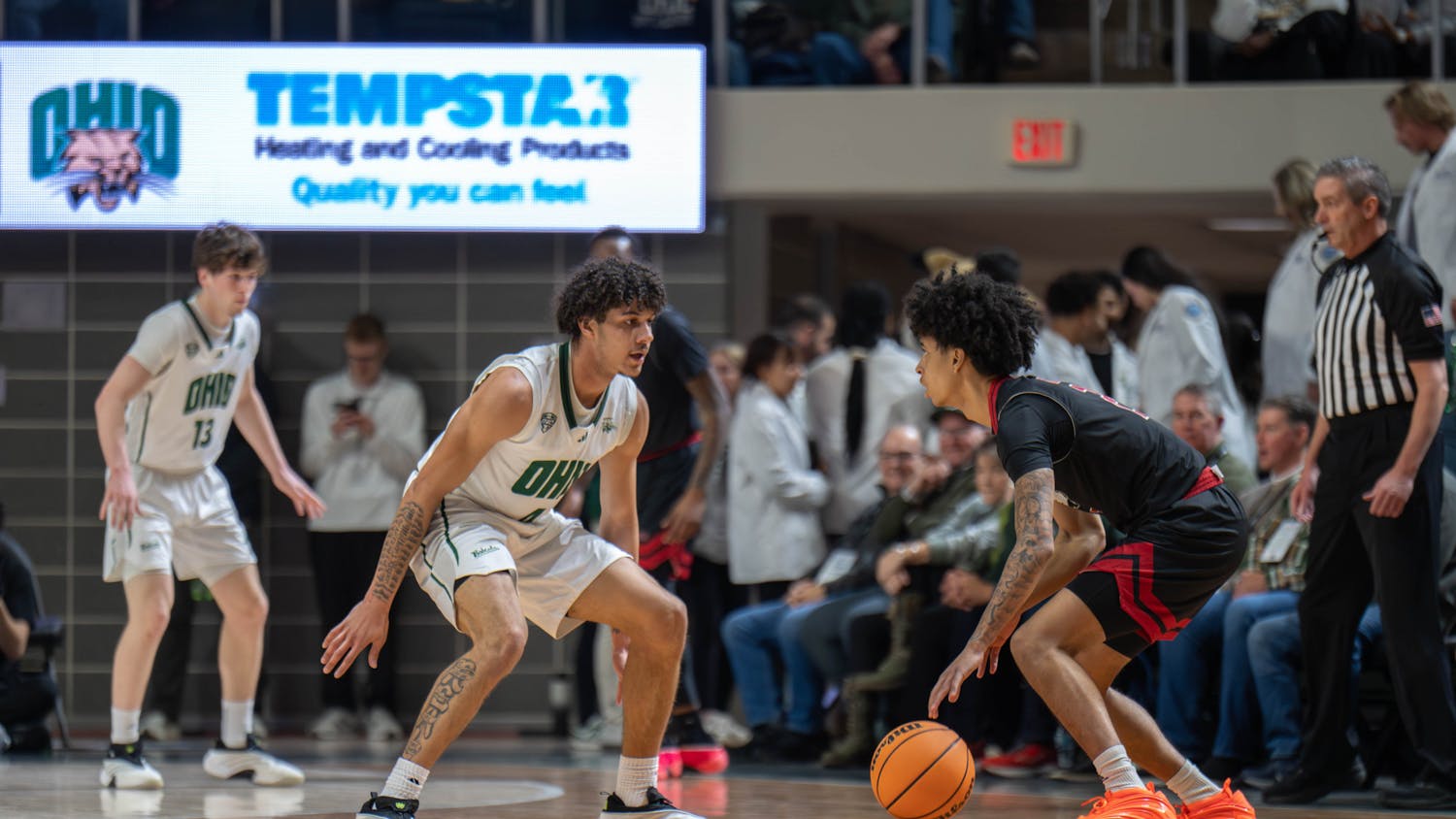More than 50 percent of Ohio University students voted in 2016, according to the National Study of Learning, Voting and Engagement. Although nationwide youth voter turnout is low, some students believe voting is important.
Over a year and a half ago, people in the U.S. welcomed a new president to the White House after the 2016 election. That election shifted power to Republicans, not only in Congress but also in the Oval Office.
In November, it is possible that the majority in Congress may change.
“It’s important for young people to vote if they’re educated,” Cameron Collier, a freshman studying mechanical engineering, said.
Although many OU students were active voters in 2016, only 12.4 percent of young people in Ohio voted during the last midterm election in 2014.
“There is no mystery here; Ohio is a swing state that gets a lot of attention during Presidential elections, but in midterm election-years the strength and tone of campaigning depends upon what seats are up for grabs and how closely contested the races are,” Anirudh Ruhil, a professor in Ohio University's Voinovich School of Leadership and Public Affairs, said in an email.
Youth voter turnout is not only lacking in Ohio, but also nationwide. According to the Pew Research Center, 51 percent of eligible millennials voted in the 2016 presidential election, compared to 69 percent of the baby boomers.
“Voting has not become ingrained in (young people), the way it becomes over decades of registering and voting,” Ruhil said in an email. “But it isn’t all about habit. The young tend to move far more often than do older adults, and that means you need to expend more effort to find out who represents you, registering to vote, finding your precinct and then eventually turning out to vote.”
With extended media coverage of politics, Ruhil said young people may care enough to turn out to vote.
“The young are anything but politically disaffected, as is quite evident from the last few elections. They volunteer, they campaign, they do protest, but it seems to have become harder for them to identify with institutionalized politics,” Ruhil said in an email. “Remember Occupy Wall Street? The Hillary-Bernie fight? Clearly they are politically active in some arenas, just not at the ballot box.”
Saylor Lewis, a freshman studying pre-nursing, is one of the many students nationwide who is concerned with certain policies that would be affected by the results of an election.
"We’re the next generation coming upm so we want the government to be the way we want it to be,” Lewis said.
The midterm elections dictate who has power in Congress. In an NBC News/Wall Street Journal poll of 900 registered voters, 52 percent of those voters preferred Democratic control in Congress, compared to 40 percent who prefer Republican control. Eight percent said they were unsure.
“Polls are showing Democrats leading the generic Congressional ballot. Say the polls ring true. Will that change who controls the House, the Senate? You bet, because some of the more reliable forecasts peg the Democrats with a roughly 80 percent chance of winning control of the House, while Republicans have a roughly 70 percent chance of keeping control of the Senate,” Ruhil said in an email. “So in terms of political drama, the theater you should buy a ticket for is the House because that is where the action will be come November.”
Although an increase in young people voting could sway the election, Ruhil believes the recent election patterns in Washington make this midterm ambiguous.
“The usual discourse of politics and dynamics of partisanship has been turned on its head,” Ruhil said in an email. “Things you thought may have disastrous consequences for either party have barely jiggled the dial. That tells me you might as well flip a coin as employ sophisticated forecasting models, at least for this midterm election. The 2020 Presidential election, though, well that might be a year we remember for decades.”





